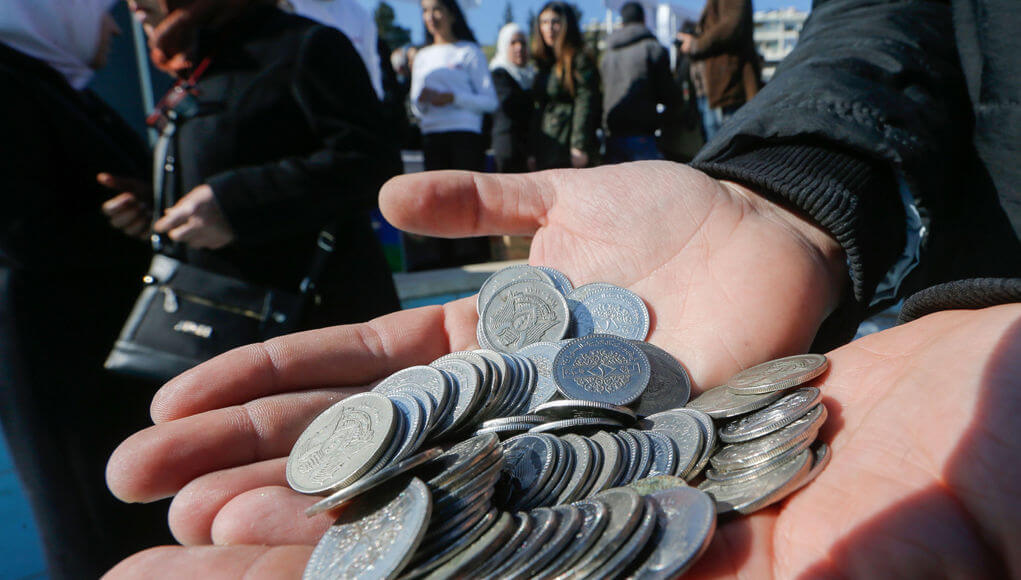For nine years, Syrian President Bashar al-Assad has resorted to destroying those seeking to end his family’s grip on power, but now he faces new threats that he cannot bomb with weapons or even rely on his allies to overcome.
Syria is on the way to an economic meltdown that will weaken Assad’s authority internally, and tough US economic sanctions after Caesar’s Act comes into effect on Wednesday will make matters worse, says a report on the New York Times .
“The problem for al-Assad is that he does not have a solution,” the report quoted Danny Mackie, an analyst at the Middle East Institute in Washington, as saying.
He added that Assad finds himself in front of two options, either to talk to the Americans and make concessions or to bear what could be a major economic meltdown.
The war stifled the Syrian economy, which reduced its size to one third before the war, and claimed hundreds of billions of dollars in losses.
Last week, the Syrian pound fell to $3,500 on the black market, destroying the purchasing power of government employees.
Prices of imported food, such as sugar, coffee, flour, and rice, have tripled or quadrupled as per the market information with The Eastern Herald.
In another sign of the turmoil in the government, Assad sacked Prime Minister Imad Khamis, in a move analysts said sought to deflect blame from the economic hardship the country was experiencing.
Fearing that public discontent in the peaceful areas of the country could fuel unrest, security forces detained a number of citizens who wrote about corruption and economic decline on social media.
Anger extended from the low standard of living to the members of the Alawite minority, whose youth fought in large numbers with the Assad forces to find themselves sharing poverty in the country instead of reaping the fruits of victory, as it caused a rift between the ruling elite.
The report quoted an Alawite man with relatives in the regular army as saying that the currency collapse had made their salaries virtually worthless, as army generals earn the equivalent of less than $50 a month and soldiers earn less than a third of that.
Assad was able to restore most of the country, with the exception of the enclaves in the north and most of the northeast, with generous military assistance from Russia and Iran.
But these allies, both of whom are struggling under Western sanctions, are unlikely to save him financially, and officials in both countries have raised questions about what Assad has offered them for their support.
This week, the United States will impose comprehensive new sanctions under the Caesar Act that could target the businessmen Assad needs to rebuild his shattered cities.
https://easternherald.com/war/egypt-ethiopia-renaissance-dam-war-66745/
It is mentioned that Caesar’s law was passed by the US Congress last December, called “Syria Caesar for Civil Protection.” His name was taken from a pseudonym for a former photographer in the Syrian Military Police who defected from the regime in 2013, bringing with him 55 thousand pictures showing brutality and violations in Syrian prisons. And that shook the entire international community.












